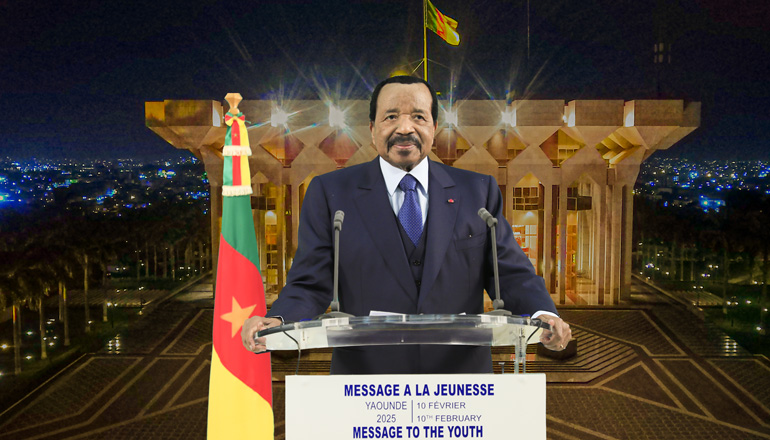
As Cameroon inches toward the October 2025 presidential election, growing whispers on the streets of Yaoundé and across social media are painting a picture of a presidency increasingly governed from the shadows.
At the heart of the storm is a now-familiar phrase: “Even if he no longer wants to, Baboke will announce it in a tweet, Samuel Mvondo Ayolo will submit the dossier, and Ferdinand Ngoh Ngoh will govern.”
This refrain captures a sentiment shared by many: that President Paul Biya, now 92 and visibly diminished by age and frailty, remains the figurehead of a system effectively steered by a powerful triad operating behind the scenes.
At the forefront is Ferdinand Ngoh Ngoh, Secretary General of the Presidency, widely considered the regime’s strategic mastermind. Described as the guardian of appointments and the state’s security machinery, Ngoh Ngoh’s reach allegedly extends far beyond the gates of the Etoudi Palace. His close ties to First Lady Chantal Biya further strengthen his influence, prompting many to view him as the regime’s real pillar.
Samuel Mvondo Ayolo, Director of the Civil Cabinet, plays a different yet crucial role. As the administrator who formalizes presidential decisions, he is seen as the gatekeeper of continuity. According to observers, should Biya’s candidacy be required—regardless of his actual ability to serve—it would be Ayolo who ensures it is formally submitted, providing a legal façade to political choreography.
Oswald Baboke, Deputy Director of the Civil Cabinet, is believed to manage the president’s social media presence and external messaging. In a digital age, Baboke’s control over Biya’s virtual voice places him in a subtle yet potent position of influence.
Together, these three officials represent what many now call a “shadow presidency.” Their prominence has become even more evident as Biya’s public appearances grow increasingly rare, and his speeches, when delivered, are often brief and ceremonial.
As the nation braces for elections, concern is mounting over what many see as a pre-orchestrated outcome. The idea of a phantom candidacy designed to preserve the status quo is fueling both political anxiety and public distrust.
In a country grappling with economic hardship and a still-unresolved Anglophone crisis, critics argue that such maneuvers could further deepen social divisions.
The looming question is no longer whether Paul Biya will stand for re-election—but who truly governs in his name. In a system where the shadow of men now eclipses the clarity of democratic institutions, Cameroon faces a precarious future—caught between the façade of continuity and the urgent call for transformation.



